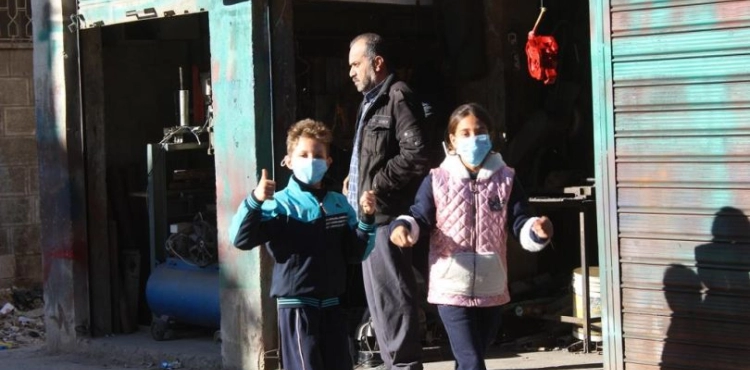The Ministry of Health of the Palestinian Authority announced that it had dealt with 14 cases of the H1N1 virus known as "swine flu" in the occupied West Bank, since the first of last September.
"The rate of swine flu infection this year is lower than last year, after this type became among the seasonal viruses that are registered in Palestine as (H1N1), where many people are diagnosed annually," Yasser Bouzieh, Director General of Public Health at the Palestinian Ministry of Health said in a press statement. Of cases. " He pointed out that the Ministry of Health received 10 samples from the Gaza Strip, none of which were diagnosed with the disease, after laboratory confirmation of them. Bouzeya pointed out that the Ministry of Health is making unremitting efforts to prevent "swine flu", by providing all means of prevention and issuing educational and educational brochures on the mechanism of dealing with patients, whether in homes or hospitals. He stressed the availability of the necessary treatment for this disease in all private and governmental hospitals, by providing it by the Ministry of Health, adding that those who have good immunity and are infected with it are recovering without knowing that they have been infected. Bouzie called on citizens to increase their intake of fluids in the winter, especially that contain vitamin (C), and the need to use tissue paper and stay away from other infected people to avoid infection. It is noteworthy that the virus "H1N1" is transmitted through sneezing or coughing, and touching surfaces contaminated with the virus, through saliva or mucus, and symptoms and signs of swine flu are similar to other seasonal influenza, the most prominent of which are severe fever, chills, dry cough, severe body pain, headache and fatigue Fatigue, in addition to chest tightness, requires symptoms from one to three days to begin to appear.












